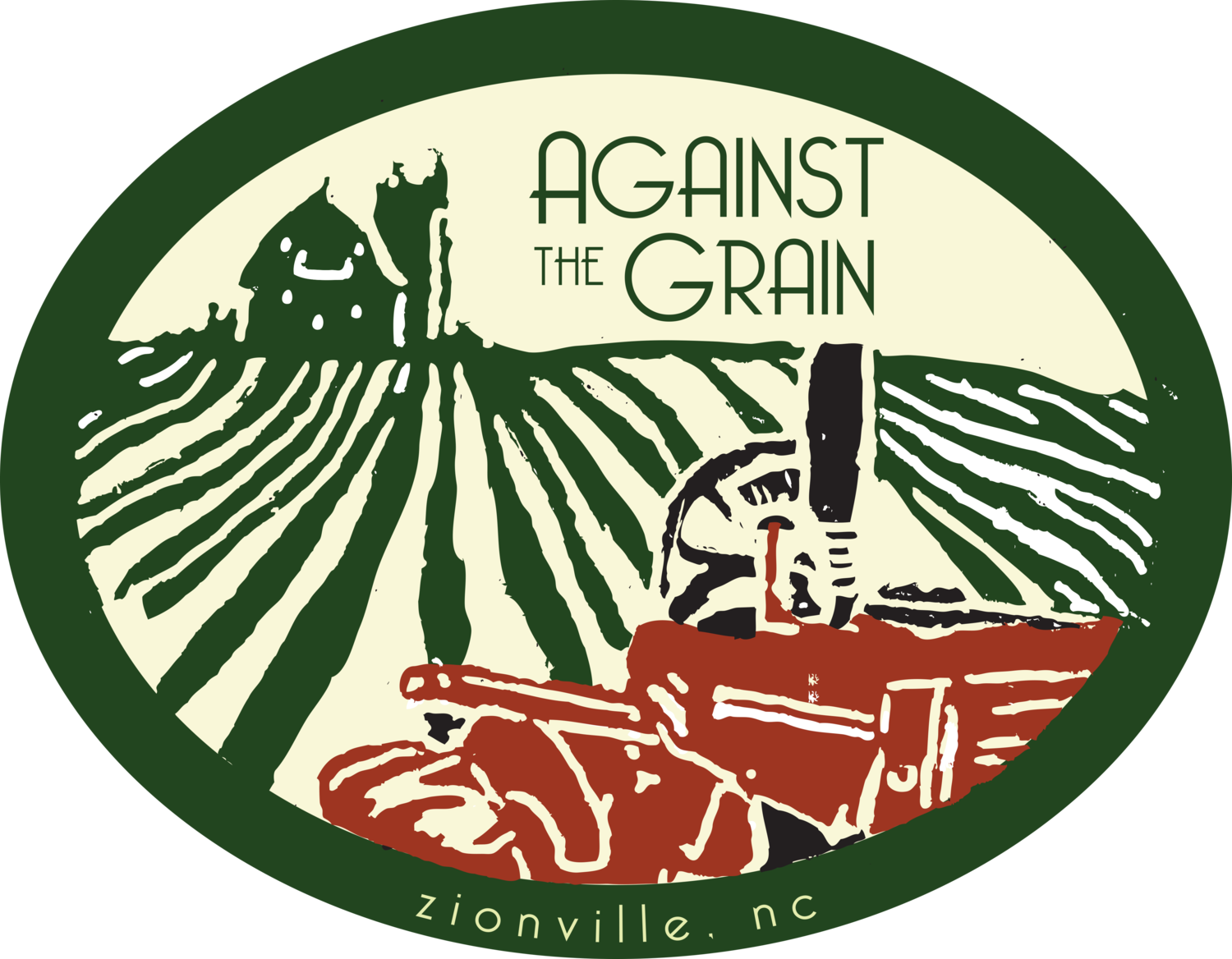The biggest news from the farm this week is that the sorghum crop got stripped, cut, pressed and boiled into sweet, sweet syrup. Sorghum is a crop that Andy and Holly grew before they ever started ATG. It’s a crop that rooted them deeply in Appalachian agriculture and bound them to each other. They continue to enjoy making molasses because it contributes to the farm in unique ways. For starters, it supports the farm’s social capital and builds community. Who doesn’t like to gather around a fire? Plus, sorghum requires a lot of hands working toward a common goal, which is something that has been largely lost in contemporary agriculture.
Sorghum also contributes to the farm’s biological capital in a different way from any other crop that ATG grows. With most crops, a significant amount of carbon leaves the farm in a form of produce. Carbon cycling is a big topic among Biodynamic and regenerative agriculture circles. With appropriate tillage and other production techniques, capturing carbon in the soil is one way that agriculture can do it's part in the face of climate change. With sorghum, the leaves are stripped from the plants and fed to the goats. Then, once the stalks are pressed to extract the sugar, the crop residue makes a great addition to the compost. Additionally, sorghum is planted in May and harvested in October, so the soil is covered with living plant material for a majority of the growing season. Since the soil is protected and most of the carbon from the crop is cycled on the farm either through animals or compost, we consider the block where the sorghum grows each year as being "at rest" for that season. For all of these reasons and more, sorghum is a fun crop with sweet rewards!
In case we haven’t said it enough, we'd like to thank you all of our CSA members for taking the journey of the 2019 season with us. Thank you for trusting us to be your farmers and perhaps, for trying a new vegetable! At the surface, a CSA membership involves exchanging money for vegetables, but upon deeper reflection, we can see that it also builds relationships. Human beings have a basic need to have a relationship with a farm. Food is at the heart of the human experience; it's literally at the center of the places we gather (tables, family reunions, potlucks, weddings). The more we are connected to where our food is grown and who grows it, the more we are connected to that which nourishes us. The structure and pace of modern life often prevents this connection, but a CSA membership is one way we to re-engage with food, family and community.
